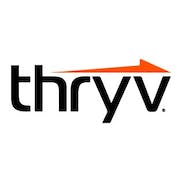Looking for the best customer communications management software? Our comprehensive buyers guide has everything you need to know to make the right choice.
If you're a business owner, you know that communicating with your customers is one of the most important things you can do. But with a wide range of channels available today, managing customer communications can be a daunting task. That's where customer communications management (CCM) software comes in. In this buyer's guide, we'll take a closer look at what this solution is, why you need it, and what to look for when choosing one. Whether you're a small business owner or leading a large enterprise, CCM technology can help you build stronger relationships with your customers and take your communications to the next level. So let's dive in.
What is customer communications management software?
Businesses need to be agile, efficient, and effective in managing customer interactions across multiple channels. CCM software is designed to streamline and optimize the creation, delivery, and management of personalized communication with customers across various touchpoints. This specialized application provides an end-to-end solution to manage customer communications across multiple channels such as email, print, SMS, social media, and other digital media. It centrally manages customer communication templates, content, and delivery channels to ensure that customers receive consistent and personalized messages.
The software's common use cases include:
- Invoice and statement generation: It automates the creation and delivery of invoices and statements to customers with personalized content and branding to improve customer engagement and reduce manual processes.
- Marketing and promotional communication: The system creates and delivers marketing messages over various channels to target customers with personalized and relevant messages.
- Use case management: It also creates and stores templates for business letters, documents, and forms used frequently in the business processes with personalized and uniform branding.
- Compliance and regulatory communication: The customer communication tool automates the generation and delivery of regulatory or compliance-driven letters, certificates, and receipts across different communication channels.
CCM technology is used by various organizations across different sectors, including finance and banking, healthcare, retail, insurance, and utilities, whose operations involve customer-facing communication. It is ideal for companies that value personalized marketing, streamlined communication processes, compliance-driven communication, and operational efficiency.
Key benefits of adopting a customer communications management tool
As a business owner, you understand how essential it is to provide top-notch customer service and communicate effectively with your customers. These goals can be achieved by investing in this sophisticated yet straightforward tool that increases operational efficiency, personalizes communication, and substantially reduces manual investment for mundane tasks. Here are the top benefits of using a CCM program for your business:
- Improved customer experience: It helps businesses create personalized communications for their customers, including emails, invoices, statements, and more. Personalized communications make customers feel valued and increase engagement, ultimately leading to a better customer experience.
- Streamlined communications: The solution allows businesses to manage all of their customer communications in one place, eliminating the need for multiple systems and improving communication efficiency. Streamlined communications save time and money for businesses while increasing customer satisfaction. In fact, the IDC Marketscape: worldwide customer communications management applications 2022 stated that organizations cited a 26% improvement in customer satisfaction as a result of embracing digital transformation.
- Automation: A communication tool automates repetitive and manual tasks, such as sending invoices and payment reminders. Automation frees up employees' time to focus on more critical tasks while ensuring that customers receive timely and accurate communications.
- Compliance: The solution helps businesses comply with regulatory requirements for customer communications, such as GDPR and CCPA. Compliance is critical for businesses to avoid legal issues and maintain customer trust.
- Cost savings: It reduces the cost of paper-based communications, such as printing, postage, and storage. Cost savings are beneficial for businesses, both small and large, allowing them to invest in other essential areas of their operations.
10 key features of customer communications management software
Investing in a CCM platform will pay off in the long run by increasing loyalty, improving business processes, revolutionizing customer experience and enabling growth.Here are some of its most common features:
1. Omnichannel communication:
It allows organizations to communicate with their customers over multiple channels like email, SMS, push notifications, and social media.
2. Personalization:
With a communications management tool, businesses can create highly personalized and targeted messages based on customer data, behavior, and history. This leads to increased engagement and improved customer satisfaction.
3. Automation:
The package automates the entire communication process, from content creation to distribution. This not only saves time but also ensures consistency in messaging across all channels.
4. Workflow management:
It streamlines communication workflows, making it easy to manage content, reviews, approvals, and scheduling. This ensures that messages are delivered on time and on schedule.
5. Analytics:
It alsoprovides detailed analytics and insights into the performance of communication messages, allowing businesses to make data-driven decisions and optimize their messaging for better results.
6. Compliance:
A customer communications application ensures compliance with industry regulations and standards like GDPR, HIPAA, and CCPA, among others. This minimizes the risk of legal issues and data breaches.
7. Templates and content libraries:
It provides a range of templates and content libraries to help businesses create and distribute messages quickly and easily.
8. Integration:
The solution can integrate with other systems like CRM, ERP, and marketing automation software to streamline communication workflows and deliver highly targeted messages.
9. Collaboration:
It enables collaboration between different teams and departments, allowing for smoother communication and better teamwork.
10. Customization:
It also allows businesses to customize messaging to align with their branding and voice, leading to more consistent and trustworthy messaging.
Key considerations when adopting a CCM tool
As businesses look to adopt more modern approaches to communication and customer engagement, customer communications management software has emerged as a game changer for achieving this objective. Here are some factors that businesses should consider when purchasing a CCM solution.
1. Integration with existing systems
One critical factor to consider is its ability to integrate with existing business systems. Given that CCM software impacts many areas of a business, including marketing, customer service, and sales, it should integrate with systems such as CRMs, marketing automation tools, and ERP software. This ability to integrate seamlessly with existing systems ensures that the CCM solution is efficient and effective.
2. Ease of use
Another critical factor to consider when making a purchase decision is its ease of use. Businesses should look for an application with a user-friendly interface and standard design frameworks and templates. This approach ensures that businesses can create and deliver professional-looking customer communications without the need for specialized design expertise.
3. Personalization capabilities
Personalization is key to effective customer communication. Businesses should look for a CCM platform that allows for personalized communication and allows the use of customer data to tailor messaging. Personalized content ensures the relevance of communication and helps build customer trust, leading to stronger customer engagement and loyalty.
4. Scalability
As businesses grow, their communication needs will also increase. When choosing a CCM package, consider its scalability of the software. You should choose one that can handle an increased volume of communications without a reduction in speed or performance.
5. Security and compliance
With cybersecurity threats on the rise, businesses need to ensure that any CCM app they choose is secure and meets compliance requirements. Businesses should look for one that has cybersecurity features such as encryption, multi-factor authentication, and firewalls. The system should also adhere to regulatory compliance standards such as GDPR, CCPA, and HIPAA.
Market trends for customer communications management software
This year and beyond, CCM technology is set to keep expanding with innovative trends.
- One of the biggest trends is personalized messaging. This feature analyzes customer data, including behavior patterns and search history, to produce tailored messages and marketing collateral that are unique for each customer. CCM software is also looking to integrate customer-centric designs as the trend shows no signs of slowing down.
- Another big trend emerging for CCM software is cloud-based management. As remote work continues to emerge as a norm, businesses are increasingly turning to cloud-based CCM solutions for seamless communication and collaboration. Companies that don't currently have cloud-based management are expected to shift to the same in the coming years. According to Gartner, it was predicted that by 2023, there were expectations of over 75% of all customer communication management implementations would be cloud or hybrid solutions, demonstrating the rise of this trend.
- Additionally, the demand for mobile-first design and capabilities continues to influence CCM software trends. With more and more customers using mobile devices to access digital content, CCM tool providers are looking to optimize and personalize communication channels for mobile platforms.
- Furthermore, providers are looking to integrate artificial intelligence powered automation to reduce manual workload. Chatbots, email automation, and virtual assistants are gaining popularity with more businesses looking for ways to manage their customer engagement.
- Finally, this program is looking to create user-friendly interfaces. Users can create personalized messages, marketing collateral, and transaction documents with limited coding or deep technical knowledge, making it user-friendly and increasing accessibility.
Conclusion
In conclusion, investing in a robust customer communications management system is a strategic move for businesses aiming to stay competitive and responsive. By enhancing customer interactions, leveraging data insights, and ensuring compliance, CCM technology plays a pivotal role in driving business success and achieving long-term growth. Choosing the right CCM product means that businesses can take control of their business operations efficiently, saving time and boosting productivity.










